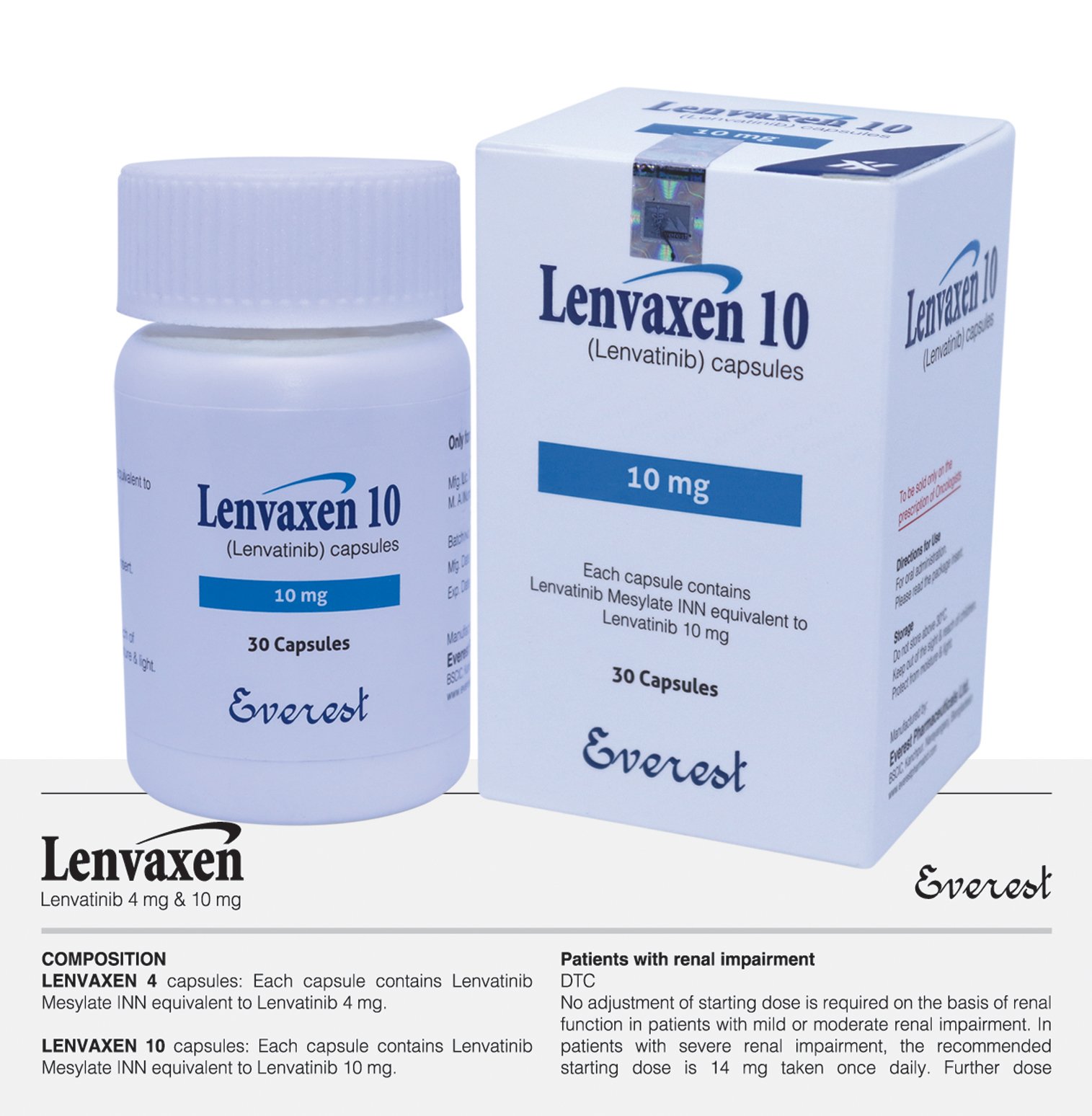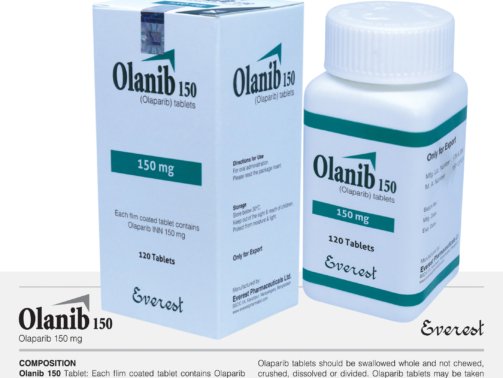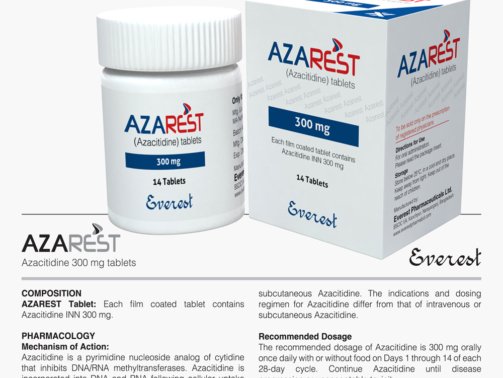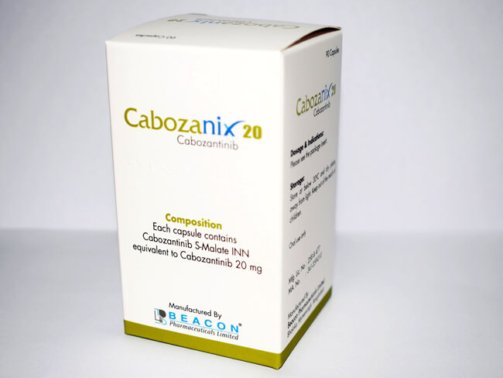Lenvatinib 10 mg
0.00$
Lenvaxen, containing Lenvatinib Mesylate, which is the International Nonproprietary Name (INN) equivalent to Lenvatinib, is a medication used for treating various cancers like thyroid, kidney, and liver cancers. Acting as a multi-targeted tyrosine kinase inhibitor, Lenvaxen hampers proteins involved in tumor growth and angiogenesis, thus impeding cancer progression. The usual dose is 10 mg once daily orally, with or without food, adjusted as per individual patient needs and tolerance. Common side effects might include high blood pressure, tiredness, diarrhea, and reduced appetite, whereas more serious effects such as liver problems and bleeding may occur. Regular monitoring is vital during Lenvaxen treatment to manage potential risks and ensure optimal treatment outcomes.
Lenvatinib 10 mg, a branded version of the anti-cancer medication Lenvatinib, serves as a targeted therapy for various cancers, including thyroid cancer, liver cancer (hepatocellular carcinoma), and kidney cancer (renal cell carcinoma). This drug is now a staple of cancer treatment protocols because it can disrupt the growth and dissemination of cancer cells throughout the body.
What is Lenvatinib 10 mg?
Lenvatinib 10 mg contains Lenvatinib mesylate, a multi-kinase inhibitor that works by blocking the activity of abnormal proteins that direct cancer cells to multiply. It falls under the category of tyrosine kinase inhibitors (TKIs) and aims at multiple receptors, such as VEGFR (vascular endothelial growth factor receptors), FGFR (fibroblast growth factor receptors), and others that play a role in tumor development and angiogenesis.
Lenvatinib, produced according to stringent pharmaceutical criteria, comes as an oral tablet and is typically administered once daily. The 10 mg dosage can be prescribed on its own or alongside other treatments, depending on the type of cancer and the specific patient profile.
Uses of Lenvatinib
Lenvatinib 10 mg has been sanctioned for treating the following conditions:
Differenzierter Schilddrüsenkrebs (DTC)
Utilized in patients whose DTC does not respond to radioactive iodine treatment.
It retards cancer advancement by preventing angiogenesis and tumor proliferation.
Hepatozelluläres Karzinom (HCC)
Recommended as a primary therapy for liver cancer that cannot be surgically removed.
Commonly employed when surgery is not an option, offering a significant survival advantage.
RCC (Renal Cell Carcinoma)
Given together with other cancer treatments, like everolimus, to control advanced RCC.
Aims at various signaling pathways responsible for tumor growth and blood supply.
Endometrial Cancer (alongside pembrolizumab)
For patients with advanced endometrial cancer who are not microsatellite instability-high (MSI-H) or mismatch repair deficient (dMMR) and have experienced disease progression after previous systemic therapy.
Mechanism of Action
Lenvatinib functions by targeting various tyrosine kinases that play a role in the proliferation of tumor cells and angiogenesis (the development of new blood vessels that nourish tumors). Lenvatinib interrupts tumor blood supply and growth by inhibiting the signaling pathways of VEGFR1-3, FGFR1-4, PDGFRα, RET, and KIT.
Dosage and Administration
The amount of Lenvatinib administered differs based on the cancer type, body weight, liver function, and whether it is used alongside other treatments. The 10 mg tablet is generally included in a treatment plan that might consist of once-daily administration, regardless of meals. Taking the medication precisely as prescribed by an oncologist or healthcare provider is crucial.
Water should be used to swallow tablets whole; they should not be chewed or crushed. If a dose was missed, it should be taken as soon as it is remembered, unless it is nearly time for the next scheduled dose.
Precautions and Warnings
Before commencing treatment with Lenvatinib, patients must notify their physician about:
Any disorders affecting the liver or kidneys
Cardiac issues, such as hypertension
Previous occurrences of stroke or thrombosis
Forthcoming surgical operations
Gestation or intentions to get pregnant.
Pregnancy and Breastfeeding:
Lenvatinib can be detrimental to an unborn child, making it inadvisable for use during pregnancy or lactation. Effective contraception should be used by women of childbearing potential during treatment and for at least one month following the last dose.
Common Side Effects
Lenvatinib, like the majority of cancer treatments, can lead to side effects. Several frequent examples are:
Elevated blood pressure
Müdigkeit
Durchfall
Reduction of weight
Vomiting or nausea
Reduced appetite
Pain in joints or muscles
Severe Side Effects: Though uncommon, serious effects may include the following:
Cardiac insufficiency
Hepatic issues
Renal failure
Urinary protein
Heavy bleeding
QT prolongation (cardiac rhythm problems)
Those who notice atypical symptoms or serious adverse effects should consult a doctor without delay.
Storage and Handling
Lenvatinib must be kept at room temperature, protected from moisture, heat, and direct sunlight. Ensure that children and pets cannot reach it. Do not utilize the medication once it has expired.
Conclusion
Lenvatinib 10 mg is a major development in the treatment of specific advanced cancers. By disrupting the blood supply and signaling pathways that tumors require for growth, its multi-targeted approach aids in curtailing cancer progression. It provides real hope for many patients, but because of the possibility of severe side effects, it must be used under strict medical supervision. Patients can effectively manage treatment and enhance outcomes through regular monitoring, lifestyle changes, and open dialogue with healthcare providers.
Order Now At Mdx Pharma bd….
To order from MDX Pharma BD, visit their website at https://mdxpharmabd.com, where you can browse products and place orders online. For inquiries or orders via email, contact emedicarepharma@gmail.com. Alternatively, call (+88) 01929123476. Their address is 29, Abdullahpur, Uttara, Dhaka-1230, Bangladesh.
1. What is the purpose of Lenvatinib?
Lenvatinib 10 mg is indicated for the treatment of various cancer types, including thyroid, kidney (renal cell carcinoma), liver (hepatocellular carcinoma), and endometrial cancers. It operates by preventing the proliferation of cancer cells and severing their blood supply.
2. What is the mechanism of action of (Lenvatinib)?
A tyrosine kinase inhibitor, lenvatinib. It inhibits proteins (VEGFR, FGFR, PDGFR, RET, and KIT) that encourage blood vessel development in tumors, which leads to a deprivation of resources for the tumor and a reduction in its growth rate.
3. What is the correct way to take Lenvatinib 10 mg?
Use Lenvatinib precisely as your physician has instructed—generally, once a day, irrespective of meals. Take the capsule with water without chewing. It should not be crushed or chewed.
4. What are the usual side effects associated with Lenvatinib?
Common adverse effects include high blood pressure, tiredness, diarrhea, reduced appetite, queasiness, weight reduction, and pain in muscles or joints. Severe adverse effects can happen; notify your physician right away in such cases.
5. Is it safe to take Lenvatinib alongside other medicines?
Certain medications may have interactions with Lenvatinib. Prior to commencing treatment, always notify your doctor of all medications, supplements, and herbal products you are using.
| Product Name | Lenvaxen |
|---|---|
| Generic Name | Lenvatinib Mesylate INN equivalent to Lenvatinib |
| Formulation | Capsule |
| Available Pack size | 30 Capsules |
| Strengths | 10 mg |

 Cart is empty
Cart is empty 




